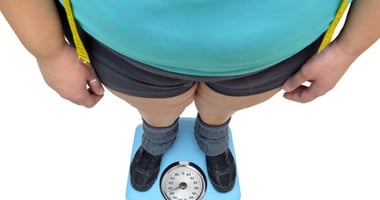Can being obese make you depressed? It all depends on other aspects of health. British researchers...
Not Just Women: Study Finds Weight Stigma May Be Harmful to Men, Too
 |
“More than 20 studies examining health effects of weight stigma in the past five years alone have been limited to women, but very few studies to date have been limited to men,” Mary S. Himmelstein, Ph.D., and colleagues at the University of Connecticut wrote.
In the study, more than 1,750 overweight men with an average body mass index of approximately 27 completed surveys about their experiences of weight-based stigma, such as whether they were teased, treated unfairly, or felt they were discriminated against because of their weight, and how much they internalized these experiences (blamed or stereotyped themselves because of their weight). The surveys also probed whether they engaged in such behaviors such as binge eating and dieting, whether the men had symptoms of depression, and the men’s sense of their health and well-being.
The researchers found that both experienced and internalized stigma were associated with depressive symptoms and dieting behaviors. Experienced weight stigma was associated with binge eating, while internalized stigma was associated with low self-rated health.
“Although there has been increasing attention to the harmful effects of weight stigma, research on weight stigma in men is often neglected,” the researchers wrote. “Our study suggests the need for increased attention to men, both in weight stigma research and among health professionals treating men for a variety of health conditions in which weight stigma may play a contributing role.”
For related news, see the Psychiatric News article “Researchers Examine Link Between Mood, Food, and Obesity.”
(Image: iStock/stevecoleimages)






